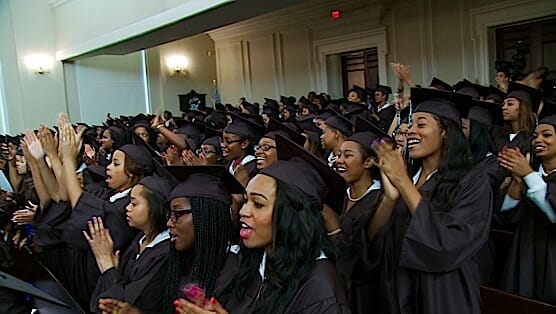Ivory Tower

Andrew Rossi’s 2011 film, Page One: Inside the New York Times, takes a year’s worth of footage shot in the titular daily’s newsroom and condenses it all to a brisk hour and a half (and change) of running time, showcasing the rapidly changing landscape of media in the Information Age. It’s never boring, never slack and endlessly informative, the rare documentary that makes its subject matter pop without dumbing itself down. His new venture, the more succinctly named Ivory Tower, follows much the same pattern as its predecessor in its chronicle of the rapidly changing landscape of college education in the Information Age. It is, however, more apt to stir the “moral outrage” center of your brain.
Ivory Tower makes a number of separate, compelling points, perhaps the most important of which is that Rossi—himself a graduate of both Yale College and Harvard Law School—is no slouch. Ivory Tower is a thorough, impressively researched film, one that both satisfies the basic demands of its category and yet refuses to be ploddingly dull. More importantly, though, it’s an essential film. By comparison, Page One feels like a special interest project, a movie that caters to a more niche audience with a particular fascination in media matters. Ivory Tower, on the other hand, has a broader appeal and a greater sense of cultural impact.
This sense of wider relevance stems from Ivory Tower’s concerns with the American dream, or at least one facet of it: education. Specifically, Rossi is hot on the tail of higher education, investigating in immense depth the rising costs of the college experience and the slowly fading possibility of seeing that dream realized. Summarizing the film adequately is a challenge in and of itself; Rossi doesn’t content himself simply with examining the spinning gears in society that have allowed the cost of education to ratchet up to such astronomical levels as they’re at today. He’s out to uncover the very purpose of college, its function in society, how we’ve gotten to a point where college even has a price tag on it to begin with and how we are, as a nation, willfully allowing these institutions to be devalued.
-

-

-

-

-

-

-

-

-

-

-

-

-

-

-

-

-

-

-

-

-

-

-

-

-

-

-

-

-

-

-

-

-

-

-

-

-

-

-

-








































